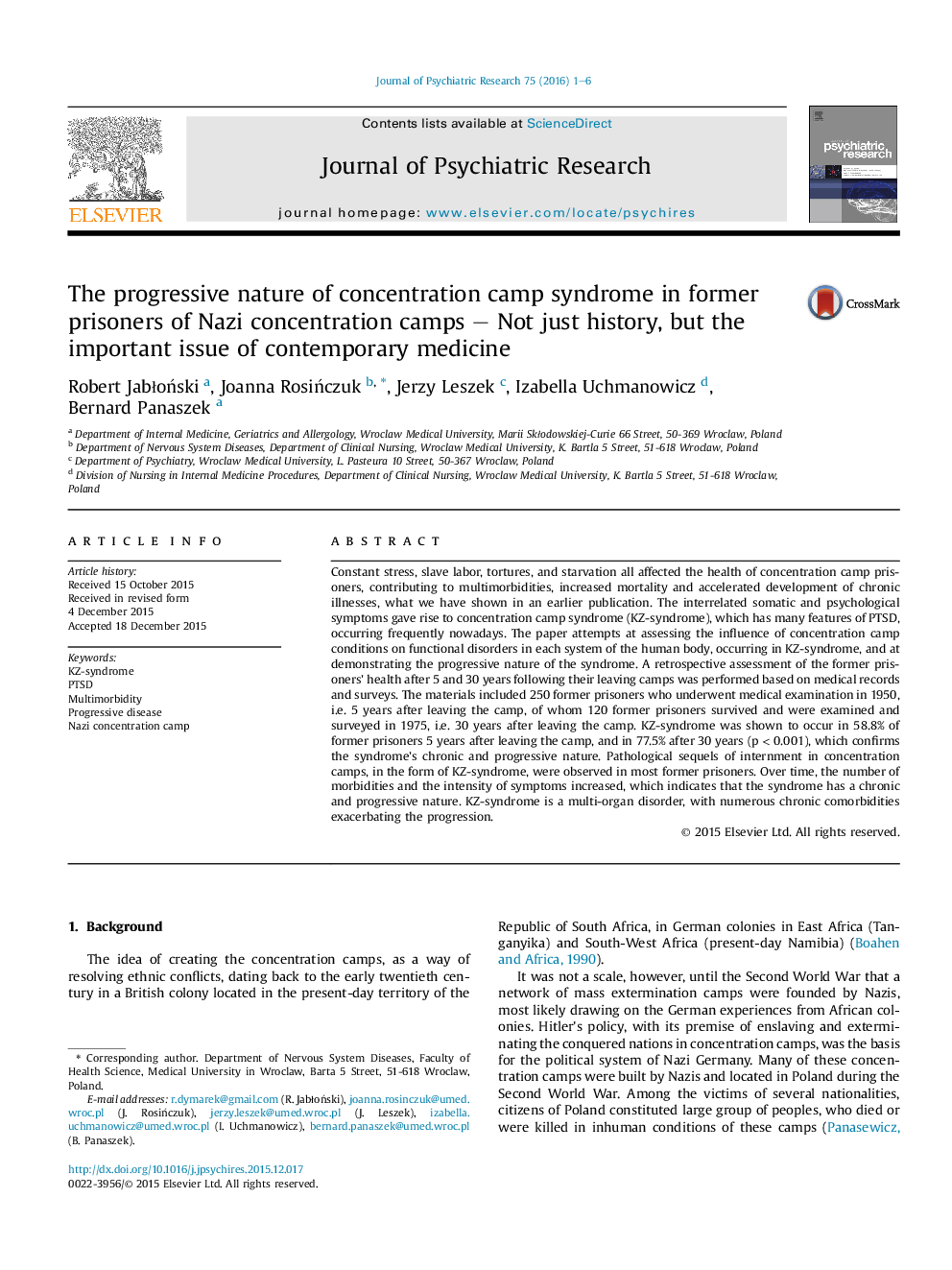| Article ID | Journal | Published Year | Pages | File Type |
|---|---|---|---|---|
| 327535 | Journal of Psychiatric Research | 2016 | 6 Pages |
•We determine influence of concentration camp conditions on development of the KZ-syndrome.•We examine 250 former prisoners 30 years after leaving the concentration camp.•We showed the chronic and progressive nature of the KZ-syndrome.•The KZ-syndrome has significant influence on the number of morbidities and on the intensity of psychiatric symptoms.
Constant stress, slave labor, tortures, and starvation all affected the health of concentration camp prisoners, contributing to multimorbidities, increased mortality and accelerated development of chronic illnesses, what we have shown in an earlier publication. The interrelated somatic and psychological symptoms gave rise to concentration camp syndrome (KZ-syndrome), which has many features of PTSD, occurring frequently nowadays. The paper attempts at assessing the influence of concentration camp conditions on functional disorders in each system of the human body, occurring in KZ-syndrome, and at demonstrating the progressive nature of the syndrome. A retrospective assessment of the former prisoners' health after 5 and 30 years following their leaving camps was performed based on medical records and surveys. The materials included 250 former prisoners who underwent medical examination in 1950, i.e. 5 years after leaving the camp, of whom 120 former prisoners survived and were examined and surveyed in 1975, i.e. 30 years after leaving the camp. KZ-syndrome was shown to occur in 58.8% of former prisoners 5 years after leaving the camp, and in 77.5% after 30 years (p < 0.001), which confirms the syndrome's chronic and progressive nature. Pathological sequels of internment in concentration camps, in the form of KZ-syndrome, were observed in most former prisoners. Over time, the number of morbidities and the intensity of symptoms increased, which indicates that the syndrome has a chronic and progressive nature. KZ-syndrome is a multi-organ disorder, with numerous chronic comorbidities exacerbating the progression.
